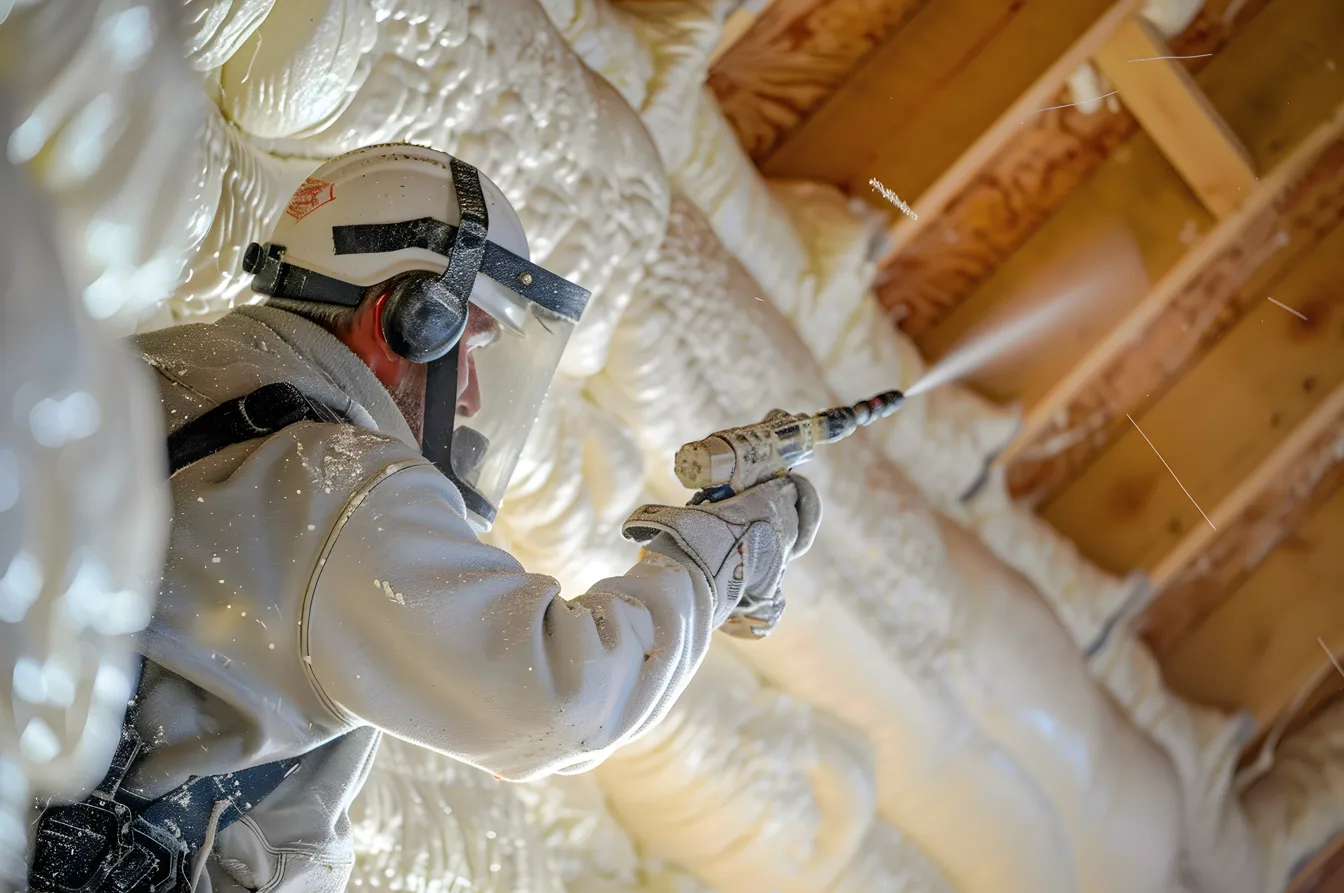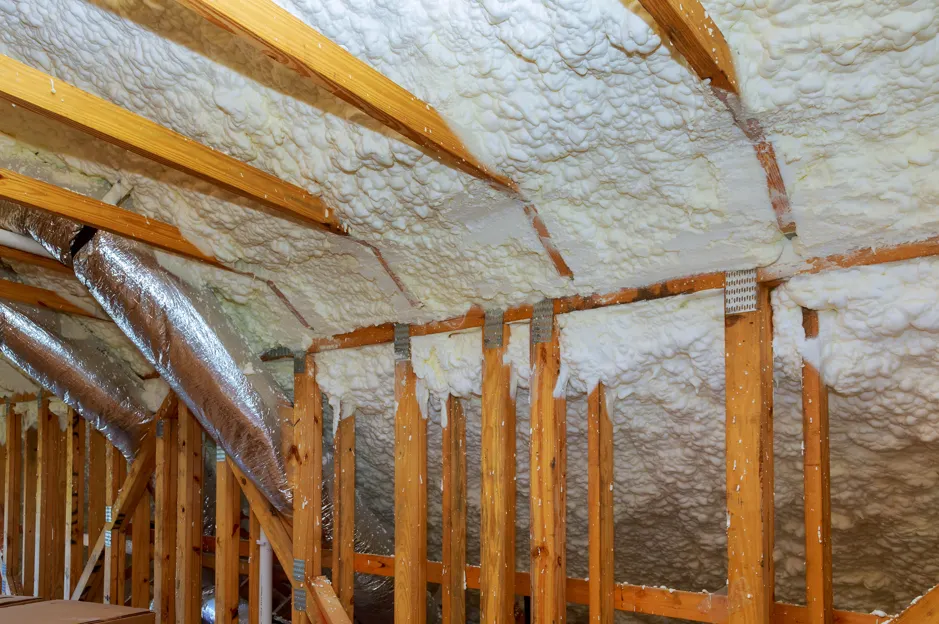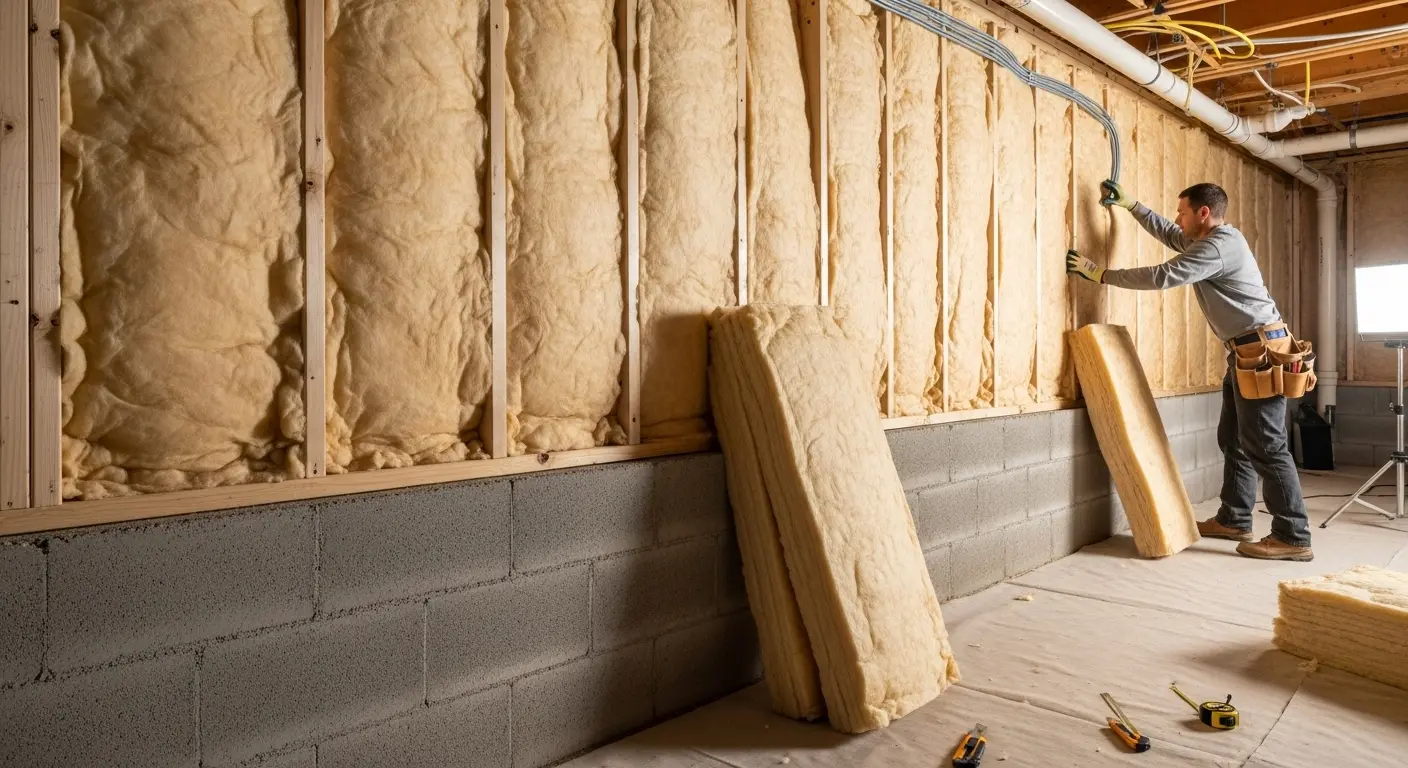Spray foam insulation is a modern insulating material used to seal walls, roofs, and floors in both residential and commercial buildings. Unlike traditional materials like fiberglass or cellulose, spray foam is applied as a liquid that quickly expands and solidifies into a dense, insulating layer. It provides two key advantages, thermal insulation and air sealing, making it especially effective in environments like NYC where energy efficiency and climate control are top priorities.
In this article, we’ll discuss how spray foam insulation in NYC works, so you know exactly what to expect and why it’s a smart choice for long-term performance.
Begins With a Chemical Reaction
At the core of spray foam’s function is a sophisticated chemical reaction. The two components—isocyanate and polyol resin—are kept separate until application. When combined at the spray nozzle, they undergo a rapid exothermic reaction, generating heat and gas.
This reaction transforms the liquid mixture into an expanding foam within seconds, setting the foundation for its insulating properties.
Rapid Expansion Fills Gaps and Irregularities
As the chemical reaction generates gas, the mixture expands dramatically—up to 100 times its original volume for some formulations. This remarkable expansion enables the foam to penetrate and fill cracks, cavities, and hard-to-reach spaces that other insulation materials might miss.
The expansion process ensures that there are no gaps or thermal bridges left behind, creating a continuous insulation layer that conforms perfectly to every surface irregularity.
Foam Hardens Into a Cellular Structure
After expanding, the foam quickly begins to cure and harden. During this process, it forms a network of tiny cells that give the material its insulating properties. In open-cell foam, these cells remain partially open, creating a less dense, more breathable structure. In closed-cell foam, the cells seal completely, creating a more rigid, water-resistant material.
The structure of these cells directly determines the foam’s insulating performance, strength, and moisture resistance.
Read More: Which Type Of Spray Foam Insulation Is Best?
Thermal Resistance Due to Trapped Gas
Inside the foam’s cellular structure are gases with low thermal conductivity. Because heat transfers more slowly through gases than through solids or liquids, these trapped gas pockets are what give spray foam its impressive R-value (resistance to heat flow).
In closed-cell foam, the denser and more tightly packed cells contain specialized gases with exceptionally low heat transfer properties, creating a highly effective thermal barrier that outperforms most traditional insulation materials.
Air Sealing Through Physical Density
Beyond insulating against heat transfer, spray foam creates a physical air barrier. Its expansion and density allow it to fill even microscopic gaps, preventing air infiltration and exfiltration. This air-sealing capability is perhaps spray foam’s most significant advantage over traditional insulation materials.
By creating a continuous air barrier, spray foam eliminates drafts, reduces energy loss, and helps maintain consistent indoor temperatures and air quality.
Moisture Resistance in Closed-Cell Foam
Closed-cell spray foam offers exceptional moisture resistance. The closed-cell structure prevents water from passing through or being absorbed by the material, effectively functioning as a vapor barrier. This moisture resistance helps protect building materials from water damage and prevents conditions that could lead to mold growth or wood rot.
While open-cell foam is more permeable to water vapor, closed-cell foam’s moisture-resistant properties make it particularly valuable in humid environments or areas prone to water exposure.
Looking for Reliable Spray Foam Insulation in NYC?
If your home struggles with energy loss or poor insulation, applying another layer won’t solve the core problem. At Foam Masters USA, we provide high-quality spray foam insulation in NYC, sealing every gap for long-term efficiency and comfort. Whether it’s a small residential project or a full building upgrade, we deliver clean, reliable results that last.
Cut energy costs with expert spray foam insulation—contact us today to schedule your service!







